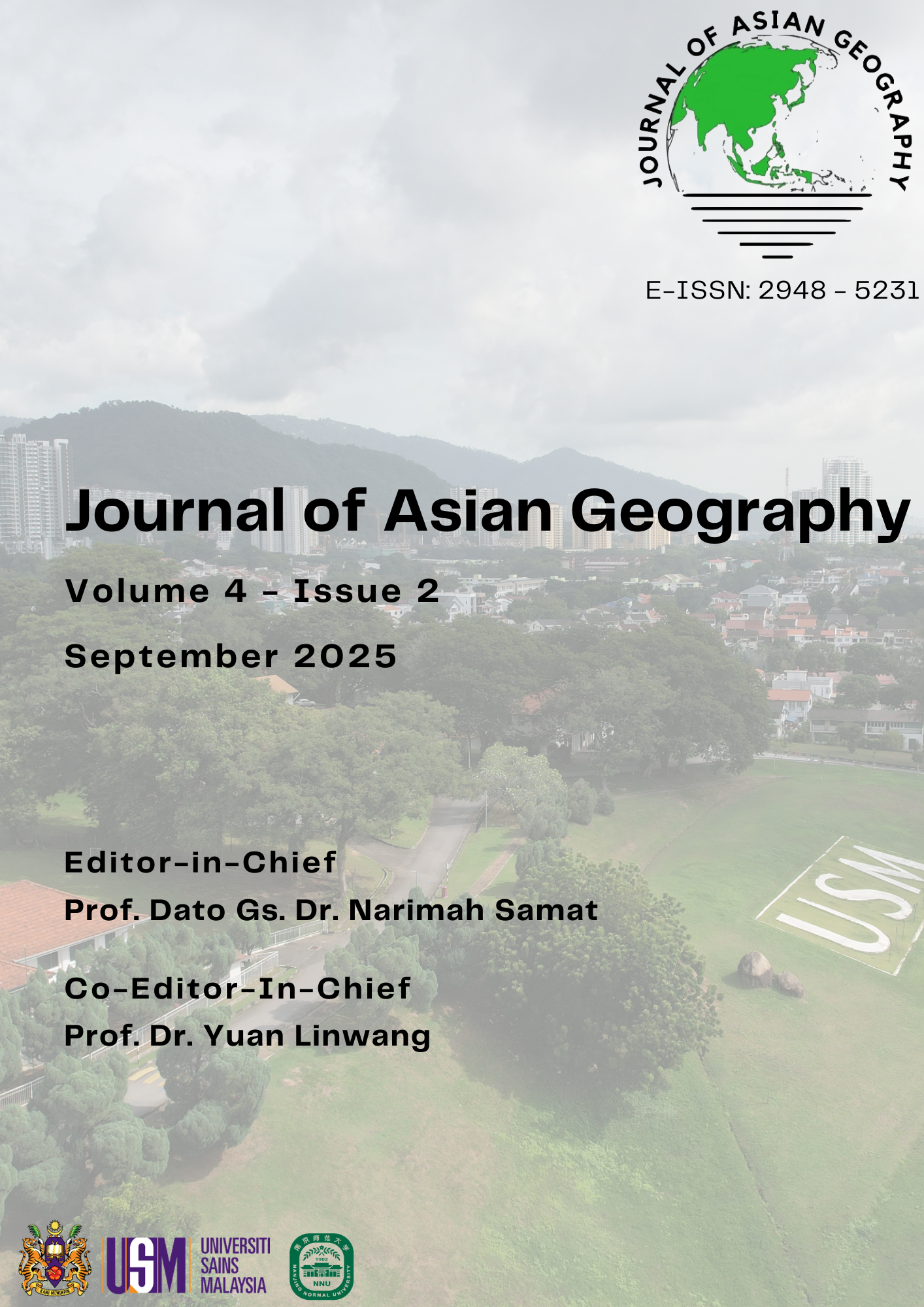Reframing Ecotourism through Stakeholder Perspectives: Toward Effective Development in Yala National Park
DOI:
https://doi.org/10.36777/jag2025.4.2.2Keywords:
Development, Ecotourism, Perspectives, Stakeholders, YalaAbstract
One of the most influential factors shaping effective ecotourism practices is the commitment of stakeholders, particularly in protected areas with high biodiversity. This article investigates stakeholder commitment and its effect on ecotourism development in Yala National Park, Sri Lanka. A qualitative case study method was employed to collect data, drawing on semi-structured interviews and field observations with various stakeholder groups, including state agencies, local communities, external tourism facilitators, and tourists. Thematic analysis, supported by the Relative Importance Index (RII), suggests that while issues such as environmental protection and collaborative decision-making remain highly valued by stakeholders, several challenges persist. These include weak governance, inadequate infrastructure, socio-cultural disparities, and economic inequality in the distribution of tourism benefits. Environmental concerns highlighted by stakeholders included poaching (31%), habitat destruction (13%), tourist overcrowding (19%), and pollution (8%). Moreover, a majority of local residents reported exclusion from both decision-making processes (10%) and revenue-sharing (42%). Other commonly cited challenges included inadequate infrastructure (26%), political interference (32%), and insufficient visitor warnings (15%). The RII analysis confirmed these concerns, showing that mutual understanding and agreement (RII: 0.63), reaching common decisions (RII: 0.63), and environmental considerations (RII: 0.62) were ranked as top priorities. In contrast, power decentralization received the lowest emphasis (RII: 0.54), indicating limited influence of local agencies in governance. Indicators such as trust among stakeholders (RII: 0.60), transparency (RII: 0.59), and comprehensiveness (RII: 0.59) also scored relatively low, reflecting a fragmented yet partially collaborative governance framework. Similarly, socio-cultural pride and local economic development (RII: 0.58) ranked low, aligning with qualitative evidence of cultural erosion (16%) and youth marginalization (14%), pointing to broader social consequences of the current tourism regime. The findings highlight the need for participatory governance, cultural sensitivity, and inclusive development approaches. This study proposes actionable reforms aimed at strengthening cooperation, improving ecotourism management, and promoting community-led ecotourism models in protected areas
Downloads
Published
Issue
Section
License
Copyright (c) 2025 Journal of Asian Geography

This work is licensed under a Creative Commons Attribution 4.0 International License.


